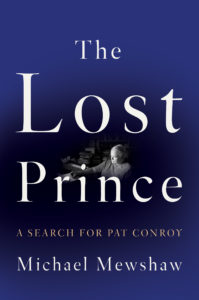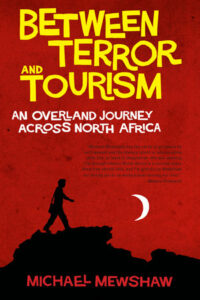Michael Mewshaw
Michael Mewshaw’s five–decade career includes award–winning fiction, nonfiction, literary criticism, and investigative journalism. He is the author of the nonfiction works Sympathy for the Devil: Four Decades of Friendship with Gore Vidal and Between Terror and Tourism; the novel Year of the Gun; and the memoir Do I Owe You Something? He has published in The New York Times, The Washington Post, Los Angeles Times, and numerous international outlets. He spends much of his time in Key West, Florida.
Subscribe to our newsletter for news & events from Counterpoint Press.
Books
The Lost Prince
A Search for Pat Conroy
“In The Lost Prince Michael Mewshaw sets down one of the most gripping stories of friendship I’ve ever read.” —Daniel Menaker, author of My Mistake: A MemoirPat Conroy was America’s poet laureate of family dysfunction. A larger–than–life character and the author of such classics as The Prince of Tides and The Great Santini, Conroy was remembered by everybody for his energy, his exuberance, and his self–lacerating humor.
Michael Mewshaw’s The Lost Prince is an intimate memoir of his friendship with Pat Conroy, one that involves their families and those days in Rome when they were both young—when Conroy went from being a popular regional writer to an international bestseller. Family snapshots beautifully illustrate that time. Shortly before his forty–ninth birthday, Conroy telephoned Mewshaw to ask a terrible favor. With great reluctance, Mewshaw did as he was asked—and never saw Pat Conroy again.
Although they never managed to reconcile their differences completely, Conroy later urged Mewshaw to write about “me and you and what happened . . . i know it would cause much pain to both of us. but here is what that story has that none of your others have.” The Lost Prince is Mewshaw’s fulfillment of a promise.
Between Terror and Tourism
An Overland Journey Across North Africa
For his 65th birthday, acclaimed novelist Michael Mewshaw took a 4,000–mile overland trip across North Africa. Arriving in Egypt during food riots, he heads west into Libya, where billions in oil money have produced little except citizens eager to flee to Europe or join the jihad in Iraq. In Tunis, Mewshaw visits an abandoned Star Wars movie set where Al Qaeda has just kidnapped two tourists.Ignoring U.S. Embassy warnings he crosses into Algeria, traveling through mountain towns and seething metropolises where 200,000 people have died during more than a decade of sectarian violence. Searching for the tombs of seven monks murdered by Islamic fundamentalists, he reaches a village where six more people have been beheaded the day before. When he interviews a repentant terrorist responsible for 5,000 deaths, the man praises the Boy Scouts for training him.
By contrast, the Moroccan city of Tangier seems almost tame. But then he meets the last literary protégé of Paul Bowles who accuses Bowles of plagiarism and murder. In the end, the reader, like the author, is immersed in a fascinating adventure that's sometimes tragic, often funny, occasionally terrifying and always a revelation of a strange place and its people.

Catapult | Counterpoint | Soft Skull
20 Jay Street #704
Brooklyn, NY 11201
646.926.0805 | contact@catapult.co






